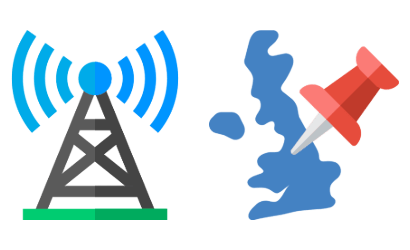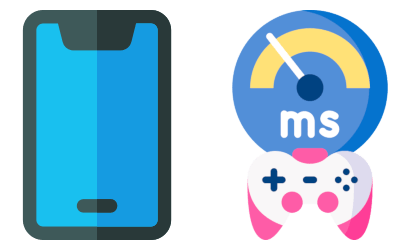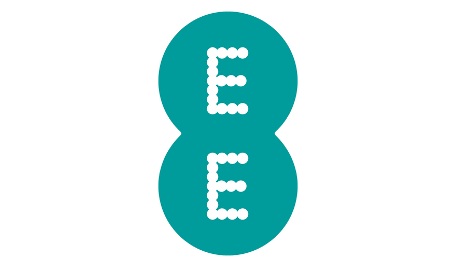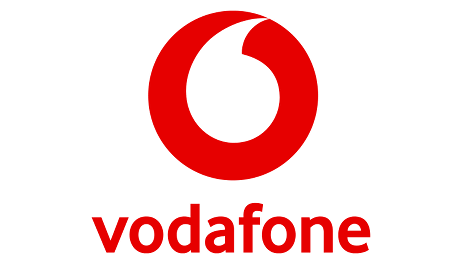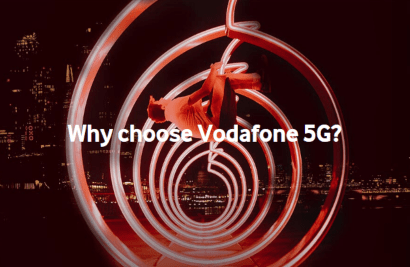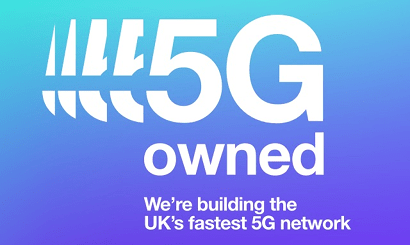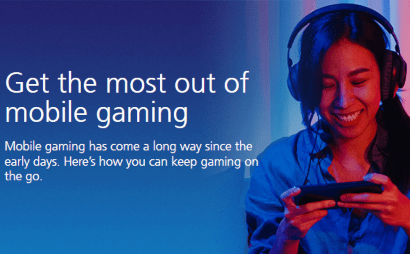Mobile gaming: the best UK networks for data performance

The retailers featured on this page may compensate us when our readers follow links to their websites and make a purchase. More
We look for the mobile networks that hit that magical combination of great 4G/5G data coverage, speeds and latency, plus big data plans. Last updated: 7th September 2022
What makes a network good for gaming
Good data signal coverage and speeds are a must
If you’re planning to play games on your phone while you’re on the go then it’s important to consider which networks typically offer the best 4G and 5G coverage and speeds, so you’re not slowed down while gaming.
For speeds we take results from independent network testers Opensignal and Speedtest by Ookla, which show the average speeds users get on each network across millions of volunteer phones.
But these averages don’t tell the whole story. So we then compare these results to our own real-life test results to show what sorts of speeds and signal you can get in which sorts of areas.
In any case, it’s always worth using each networks’ coverage checker to see how signal is in your area. After all, the national picture doesn’t matter as much if a network don’t offer strong signal near you.
Useful link: Opensignal’s 5G network speed results
Latency, jitter and packet loss are important to know about
Before just choosing the outright fastest possible network, it’s also important to know a few other things about each provider. You’ll need to know about latency, jitter and packet loss. But what are these?
Latency is the time it takes for a data packet (the information your phone needs to load things) to travel from one point to another. If latency is high then your actions in-game will be significantly delayed compared to players with lower latency.
Jitter is when a data packet arrives at inconsistent times. This means that if jitter is high you’ll notice things speeding up and slowing down, which can make it incredibly frustrating when performing actions that require precise timing.
Finally, packet loss is when information in your data package is lost in the transit from the mast to your phone which will result in stuttering or poor connection. For example, in a driving game you might stutter then find you’ve crashed into a wall.
Unfortunately there is no totally impartial information on jitter and packet loss, so we’re relying on a report on EE’s website from a reputable network tester. This information gives us a good idea of what to expect from each network.
Useful link: Speedtest’s report on each UK network
Best networks for gaming
1st: EE - brilliant overall speeds and coverage with some extras
What we like:



What we don't like: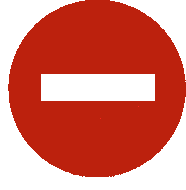
In our review of EE we showed how they’re the strongest network for 4G speeds and coverage. And we put them as our favourite network for 5G. But they also offer even more to make them the best UK network for gaming in our eyes.
EE cover 98% of the UK’s landmass for 4G and 160+ locations for 5G. They don’t have the highest number of declared 5G locations, but they only claim a place to be covered when 5G is available in 50% of its area.
In terms of speeds, Opensignal claim typical speeds on EE’s network sit around 44.0 Mbps, while in our own testing we got speeds of up to 130+ Mbps on 4G+. Typical 5G speeds sit between 131.9 Mbps - 158.30 Mbps according to Opensignal and Ookla.
There are a few other providers on EE’s network that offer a similar network experience. We can’t confirm whether jitter and packet loss are the same compared to being on EE, however.
BT Mobile are a slightly cheaper alternative to EE while still offering exactly the same 4G and 5G coverage and speeds. Their prices get even cheaper if you have BT broadband at home, as you get a £5 discount on all plans.
1pMobile are another option on EE’s network. They also offer the same 4G and 5G experience, but on much cheaper plans. These plans are also more flexible as you won’t have to join on a contract.
Finally, Plusnet Mobile also use EE’s network. However, they miss out on some of EE’s network bands meaning 4G can be slower on Plusnet in some areas. They also don’t offer 5G or unlimited data, so they’re not an amazing choice for gaming.
According to their report they have the lowest jitter and rates of packet loss of all networks. And Speedtest’s results show that they have the joint-lowest latency. With all that in mind, we can see why Opensignal rank them the best network for gaming.
There are some massive data plans on EE, including unlimited data:
You might also like the free trial that EE offers to Apple Arcade (read more here) on all plans. Or if you don’t mind splashing out a bit of cash, EE offer unlimited gaming data as a benefit on their premium Smart Plans.
Useful link: How to get EE’s Gamer’s Data Pass
2nd - Vodafone: a typically smooth gaming experience in urban and rural areas
What we like:



What we don't like:

Vodafone also offer brilliant 4G coverage and speeds, as well as great 5G speeds in the 120+ towns and cities covered. Typically in urban areas Vodafone offer some blistering speeds, but these slow down outside the city.
According to Opensignal, typical 4G speeds sit around 21.6 Mbps. In our real life testing we found speeds of 110+ Mbps in the city centre and speeds as low as 5 Mbps in rural areas, so we can see how it averages out.
Opensignal and Speedtest by Ookla claim you’ll get speeds between 73.3 Mbps - 159.40 Mbps over 5G. That’s a big variation in results, and we think it comes down to Vodafone’s patchier 5G coverage on a street-by-street basis.
There are a few providers that piggyback off Vodafone’s network and give you a similar experience, though we can’t say for certain if jitter and packet loss are the same as their hosts.
VOXI are a sub-brand of Vodafone that offer cheaper and more flexible 1-month deals, while getting you the same 4G speeds and coverage and even 5G. There are few reasons to choose Vodafone over them for gaming.
Virgin Mobile also have full access to Vodafone’s 4G/5G network and offer somewhat cheaper 1-month deals. They also offer data rollover, which might help if your data usage varies month to month.
ASDA Mobile are the last provider on Vodafone to offer cheaper 1-month deals. You get the same network experience on most of their plans as on Vodafone directly, but their unlimited plans are speed capped depending on which one you take.
Talkmobile are another network that use Vodafone’s network and offer cheap 1-month rolling contracts. But they don’t tend to offer plans larger than 100GB, meaning there’s no unlimited data plans with them.
Finally, Lebara are another smaller, cheaper network on Vodafone that get you full access to their 5G on all of their flexible 1-month plans. They also offer unlimited data, at fairly competitive prices.
If you’re gaming near the mast you should race ahead without any issues, especially considering Vodafone have the joint-lowest latency and the lowest packet loss of all networks.
Vodafone offer very large data plans, including unlimited data plans:
Unfortunately you are more likely to run into jittering issues than on other networks. In any case, you could always take a Vodafone SIM and return it within 14 days to get a full refund if you run into issues.
Useful link: All providers on Vodafone’s network
3rd - Three: very fast data speeds but more packet loss than other networks
What we like:


What we don't like:


Three have the fastest and most widespread 5G network in the UK. So why are they so far down on the list? Well, having the fastest speeds is all well and good, but it doesn’t make up for gaps elsewhere.
In terms of speeds, Opensignal put their typical 4G speeds at a decent 25.2 Mbps. In real life we found speeds between 7 - 70 Mbps. For 5G, Opensignal and Speedtest by Ookla measure them between 103.9 Mbps - 246.65 Mbps.
Add to that the fact they have 5G live in 300+ locations and you might think Three sound like the optimal network for gaming. Well, firstly, their 5G coverage on a street-by-street basis is weaker than most networks.
That means it’s harder to stay connected to 5G, meaning you’ll be stuck on Three’s relatively slow 4G. Add to that the highest rate of packet loss, fairly high jitter and high latency and you can see why they’re this far down.
There are many smaller providers on Three’s network that get you full access to their blistering fast 5G.
SMARTY are a sub-brand of Three and offer the same 4G and 5G experience as being on their hosts directly. Their plans are much cheaper and are offered as 1-month deals without contracts.
iD Mobile are also a cheaper alternative to Three that get full access to their 4G and 5G network. They also offer data rollover as standard, which is a great way of getting to use the data you’ve paid for.
Honest Mobile also get full access to Three’s 5G network and offer their plans on 1-month or 12-month contracts. They’re fairly pricey considering they don’t offer many extra benefits, and are more focused on their environmental pledge.
In any case, they’re typically much better value than the other main networks. They offer some massive data plans, and have some great value unlimited data deals:
Still, their sheer 4G and 5G speeds as well as their 5G coverage saves them from last place. But if you run into issues on your Three SIM, you can return it within 14 days of ordering to get a full refund.
Useful link: All networks that use Three
4th - O2: slowest data speeds and a typically poor gaming experience
What we like:

What we don't like:



In our review of O2 we called them the slowest of all UK networks, both in the results from independent network testers and in our own real-life testing. But it’s not just in speeds that O2 fall behind.
Typical 4G speeds on O2 lie around 17.1 Mbps on 4G according to Opensignal, while we got speeds between 5 Mbps - 90 Mbps. In the city centre O2 can actually go a bit faster than Three, but both suffer outside of urban areas.
There are a good few smaller providers that use O2’s network for signal, all of which get access to the same 4G and 5G experience as their hosts.
Sky Mobile and Tesco Mobile are similarly priced and only offer their SIM only plans on 12-month contracts. They’re both considerably cheaper than O2, but don’t provide anything specific for mobile gamers.
giffgaff are actually owned by O2 and also get full access to their hosts 5G. Some claim that giffgaff don’t give users the same speeds as O2, but we’ve found no evidence of that in our testing.
On 5G typical speeds on O2 sit between 110.9 Mbps - 127.97 Mbps according to Opensignal and Speedtest by Ookla making them the slowest network for 5G. But they do cover 190+ towns and cities, and 5G coverage in these locations is typically quite strong.
And on top of that they have a higher rate of packet loss and latency than the top two networks (still less than Three for both) and have an only slightly lower jitter rate than Vodafone. So for gaming they’re fairly unimpressive.
At least they offer large and unlimited data deals, but they’re typically pricier than most other networks:
In the end, you could probably get by gaming on O2’s 4G and 5G speeds, but the high latency, jitter and rate of packet loss makes them the worst overall choice for gamers looking for an edge on multiplayer.
Useful link: All networks that use O2’s signal
